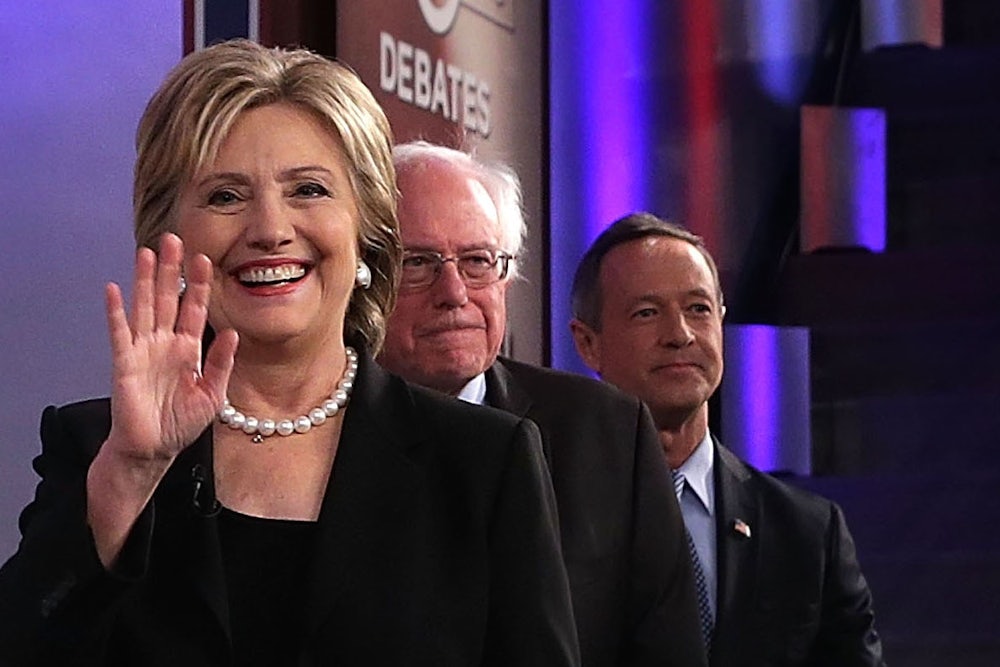Hillary Clinton, Bernie Sanders, and Martin O’Malley will face off at the third Democratic presidential debate on Saturday, December 19, at Saint Anselm College in Manchester, New Hampshire. Follow along throughout the debate with the New Republic’s Minutes, where we’ll have all the updates and analysis you’ll need to be the smartest person at your debate watch party.
The debate kicks off at 8 p.m. on ABC News, which is co-hosting with the New Hampshire Democratic Party and the Union Leader. ABC’s World News Tonight anchor David Muir and chief global affairs correspondent Martha Raddatz will moderate.
While ABC hasn’t announced a topic focus, the attacks in Paris, San Bernardino, and Colorado will surely play a prominent part in shaping the debate. Sanders will also have to answer for his campaign’s data breach controversy.
To get you up to speed, here’s what our writers have had to say about the candidates since the last debate:
Hillary Clinton
Clinton is doing an economic balancing act, writes Suzy Khimm, touting the recovery under President Obama while also acknowledging Americans’ pessimism about the future. Clinton’s still making environmentalists nervous, writes Rebecca Leber. But as a female politician, she’s had to put up with a whole lot of crap this year, notes Laura Reston. After the last debate, though, Brian Beutler wrote that she’d proved herself to be the peerless 2016 candidate.
Bernie Sanders
While the senator from Vermont is leading Clinton by two points in the latest New Hampshire polls, he’s going into the debate with a black spot on his record: His campaign improperly accessed confidential information on voters gathered by the Clinton campaign. He’s in big trouble for a reason, writes Jamil Smith. But Sanders has also had some major wins: He’s helped bring fight against inequality into the mainstream in 2015, writes Suzy Khimm. Plus, he’s inspired some pretty spectacular imitations.
Martin O’Malley
While the former Maryland governor is polling in the mere single digits, he can still play a vital role at the debate by placing the right-wing appeal to paranoia in its proper context, and then rejecting it forcefully, writes Brian Beutler.
